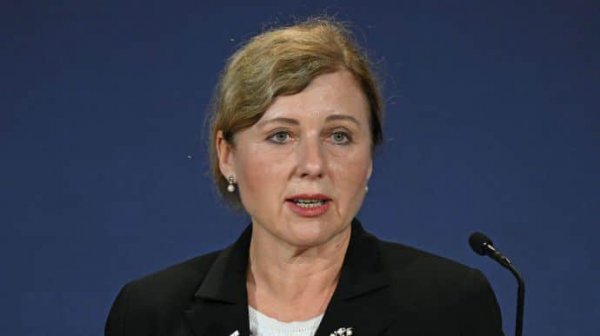
Vera Yurova, photo Getty Images
Vice-President of the European Commission for Values and Transparency Vera Jourova believes that the process of Ukraine's accession to the EU is a matter of years, not decades.
Source : Yurova in an interview with Právo, cited by Novinky, European Pravda reports.
Details : “I would prefer to talk about years,” Yurova said, answering the question whether the process of Ukraine’s accession to the EU is a matter of years or decades.
She recalled that Montenegro, Serbia, North Macedonia and Albania, with which accession negotiations have already begun, are closest to the European Union in terms of process. “This year, however, the Union will certainly not expand to include new countries, so negotiations will not proceed quickly,” said the EC vice-president.
“I am glad that the idea of “full membership or no membership” no longer applies. We have identified several areas in which candidate states can move closer to the Union without being members. States can connect with the EU through digital, energy, transport links, we “We can recognize each other's qualifications, the candidate country can gain access to the European market, albeit with restrictions. Ukraine can get all this even before becoming a member of the EU,” Jurova noted.
She also believes that from a moral point of view it would be very problematic to tell Ukraine to first resolve territorial problems and then talk about joining.
Direct speech : “It is correct that the efforts of the Ukrainians go in two directions. On the one hand, these are extraordinary efforts aimed at winning the war, even though the resources on the Russian side are much greater, especially human. At the same time, Ukraine is doing an incredible job of implementing the reforms it needs and seeks in the face of war.
Until now, we have demanded the adoption of two anti-corruption laws, a law against lobbying and a law on minorities. However, after the opening of accession negotiations, much more work will begin; all Ukrainian laws must be adapted to European legislation. This is the beginning of a truly complex process, and the Ukrainians say they are ready for it.”
What preceded : On December 14, at the EU summit, leaders supported the opening of negotiations with Ukraine and Moldova on their accession to the European Union.
Although the decision on Kyiv was blocked by Hungary for a long time, its veto was overcome by persuading the Hungarian Prime Minister Viktor Orban to leave the room during the vote and thus hold out.
Orban himself later said that he agreed to give up his veto on the start of negotiations on Ukraine's accession to the EU because he would still have many opportunities to block this process.
Read also: Orban's defeat or Ukraine's victory? Details and consequences of the decision of the historic EU summit
